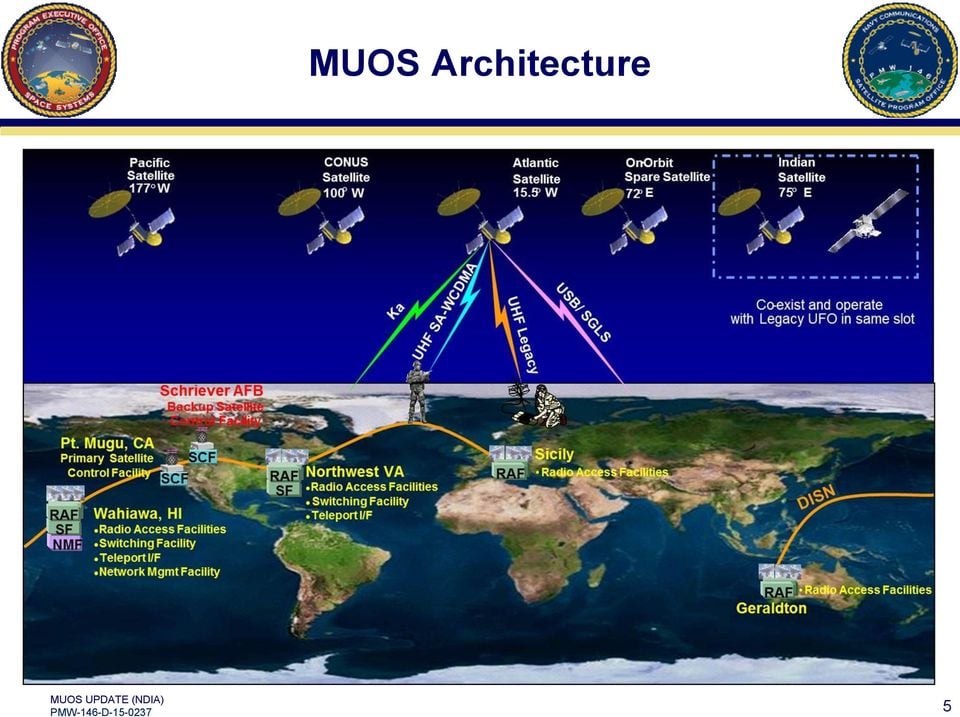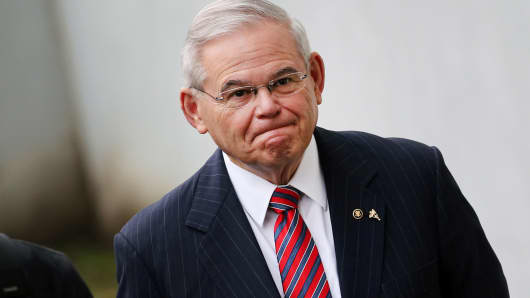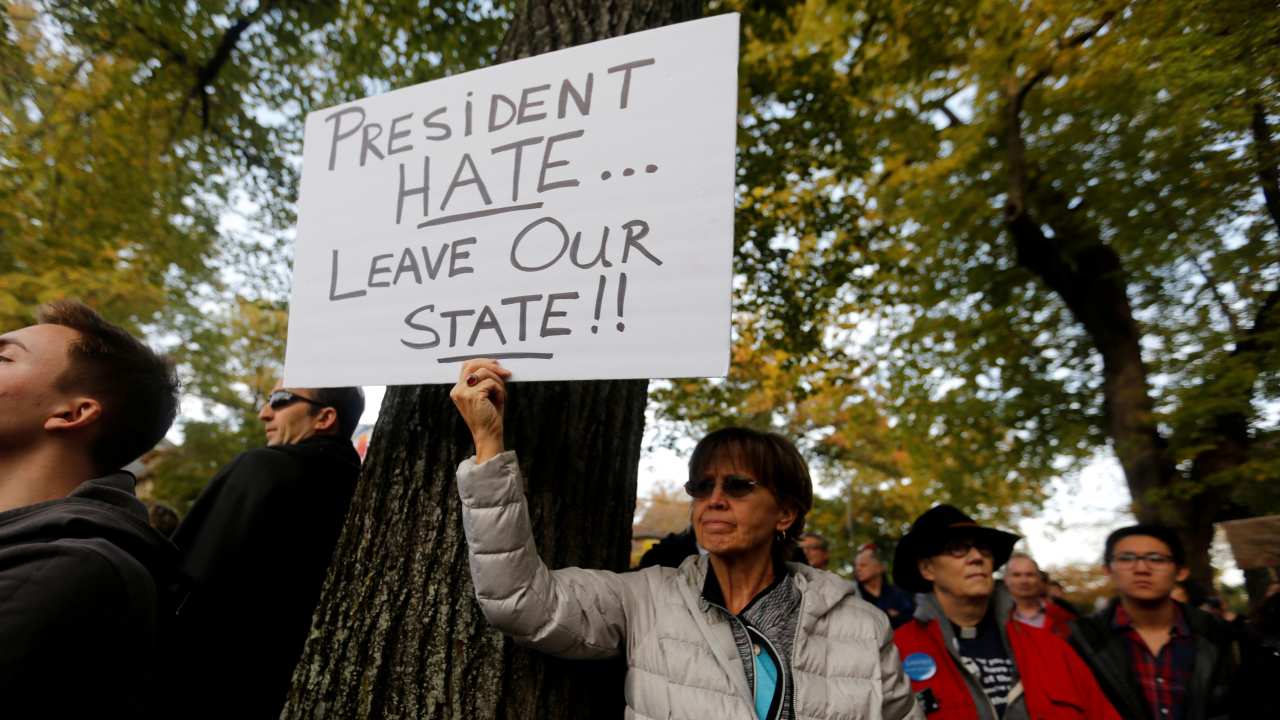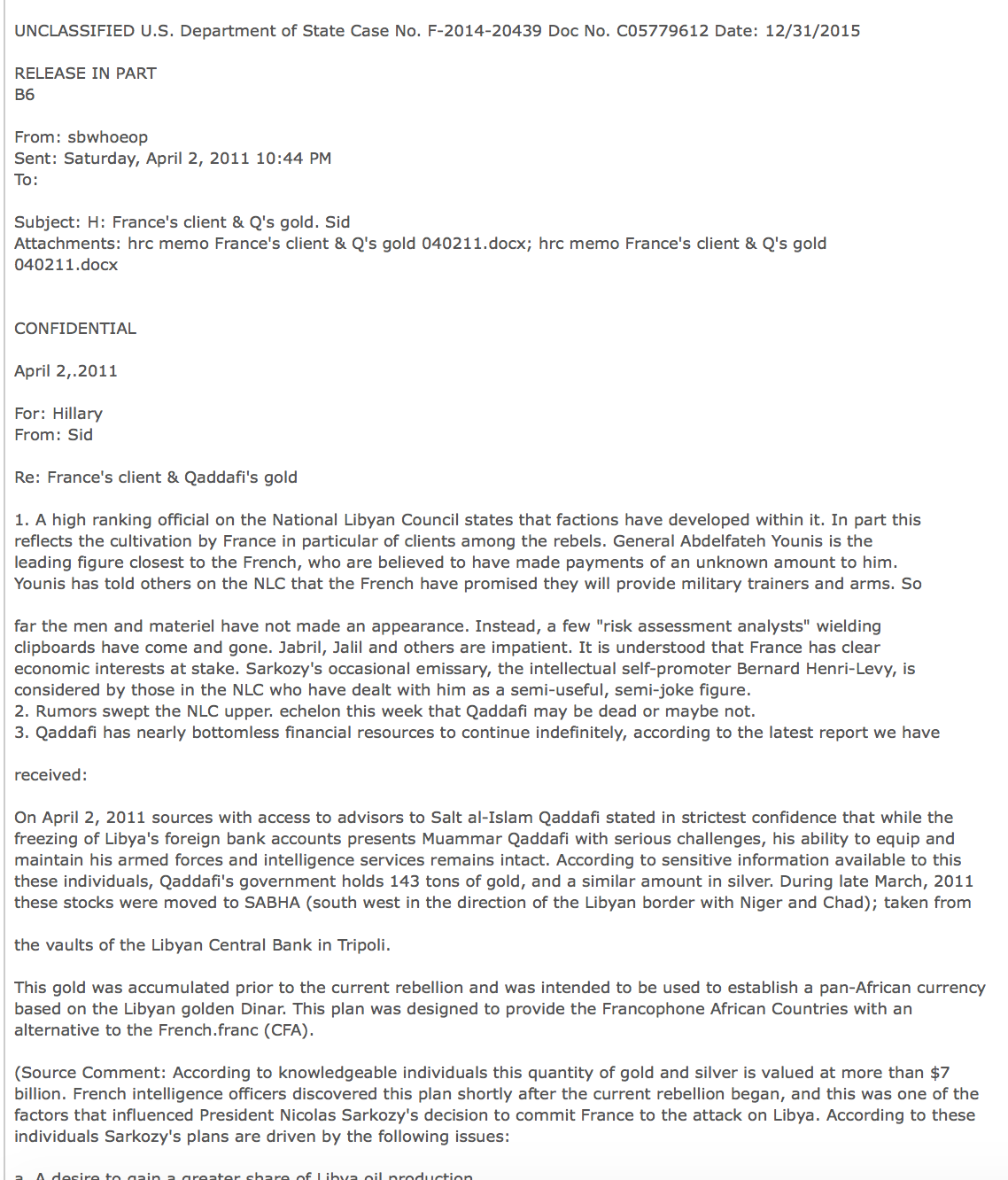2018 marks the 10th anniversary of the stock market crash of 2008; the current financial malaise is the result of the bank bailouts, not the crash; an over-indebted economy cannot be saved unless the banks fail; debt deflation; the magic of compound interest; how pension funds, state and local governments adversely affected by the bank bailouts; growth of the financial extraction FIRE sector (finance, insurance and real estate); quantitative easing; asset price inflation; wealth concentrated at the top in Roman antiquity led to the Dark Age; Eurozone imposition of austerity Greek style; tariffs, economic sanctions and isolationism.
Full Transcript below. (Source: CounterPunch)
You can’t bail out the banks, leave the debts in place, and rescue the economy. It’s a zero-sum game. Somebody has to lose. That’s what happened in 2009 when President Obama came in. He invited the bankers to the White House and he said, “I’m the only guy standing between you and the mob with pitchforks,” by which he meant the voters that he was bamboozling. He reassured the bankers. He said, “Look, my loyalty is to my campaign donors not to the voters. Don’t worry; my loyalty is with you.”
I’m Bonnie Faulkner. Today on Guns and Butter, Dr. Michael Hudson. Today’s show: Rescuing the Banks Instead of the Economy. Dr. Hudson is a financial economist and historian. He is president of the Institute for the Study of Long-Term Economic Trend, a Wall Street financial analyst and Distinguished Research Professor of Economics at the University of Missouri, Kansas City. His 1972 book Super Imperialism: The Economic Strategy of American Empire is a critique of how the United States exploited foreign economies through the IMF and World Bank. His latest books are Killing the Host: How Financial Parasites and Debt Bondage to Ensure the Global Economy and J is for Junk Economics.. Today we discuss how the bank bailouts, not the crash, are killing the economy. Also, the concept of debt deflation, the magic of compound interest, the growth of the financial extraction FIRE sector, quantitative easing, tariffs, economic sanctions and isolationism.
BONNIE FAULKNER: Dr. Michael Hudson, welcome.
MICHAEL HUDSON: It’s good to be back after a few years.
BONNIE FAULKNER: Boy I’ll say. I’ve just read your article “The Lehman 10th Anniversary Spin as a Teachable Moment.” Obviously, 2018 is the tenth anniversary of the 2008 stock market crash. You immediately point out that today’s financial malaise is a result of the bank bailout not the crash. I think people might find this statement surprising since the claim is that the bailout saved the economy.
MICHAEL HUDSON: I think what the newspapers said was that the bailout saved the banks. To bankers, their banks are the economy. The problem is, you can’t save the banks and the economy. If you save the banks, you’re saving all the debt that people owe to the banks. And if you save all the debt that the people owe to the banks – and you foreclose on the millions of families that forfeited their homes in the mortgage crisis – if you leave the debts growing at compound interest, raise the debt equity ratios and the debt-to-income ratios, then the economy is going to shrink and shrink, and we’re in a slow crash. So in a sense the celebration over “Yes, we saved the banks” was correct last week, but people don’t realize that the economy cannot be saved unless there’s a bank crash.
That’s what Sheila Bair wrote in her memoir about her experience as the head of the Federal Deposit Insurance Corporation. She pointed out that Citibank was insolvent from losing all its net worth on bad gambles. She said it was the worst managed bank in America – as distinct from the just plain crooked banks and criminal banks like Countrywide, Bank of America and Wells Fargo. She said that there was plenty of theft by Citibank, but that all the insured depositors could have been reimbursed. No insured depositor would have lost money. But the stockholders and the bondholders that ran this gambling institution would have been wiped out. She said that Obama and Geithner really represented Citibank. Geithner was a protégé of Robert Rubin, the Secretary of the Treasury under President Clinton. She wrote that she found out, she was told, “It’s all about the bondholders.”
The problem is that Republican free-enterprise bankers discussing what happened ten years ago are saying, “Nothing to see here folks. Everything’s fixed now. We don’t have to do any regulation. Let the banks be free again.” Or, you have Democrats like Paul Krugman who cannot bring themselves to criticize what Obama did. A week ago, on September 14, Krugman showed himself to be a flack for the banks and for the Democrats’ donor class by writing that the Washington Beltway was crazy to believe that America had a debt problem. As I wrote in my article, he said that all you need is Keynesian policy to run a large enough budget deficit to spend enough money into the economy so that wage earners will have enough to pay the banks what they owe. I think this is the Democratic Party’s position: The role of wage earners is to make enough money so that all of their income over and above survival needs has to be paid for the banks. More and more income is needed to pay carrying charges as their debts keep rising.
Let me quote what Krugman wrote in The New York Times: “The purely financial aspect of the crisis was basically over by the summer of 2009.” But we’re still living in the rest of the financial crisis! The debt crisis is a financial crisis. He criticized the common-sense observation that I’m sure most of your listeners can realize right away: He referred to the “bizarre Beltway consensus that despite high unemployment and record low interest rates, debt, not jobs, is the real problem.” He says there’s no debt problem; it’s all just jobs, and if you pay people more, then they can pay the banks.
There’s no feeling at all within the Democratic Party that somehow the banks should have been subordinate to saving the economy. I think that is a major reason why Hillary lost the 2016 election. She kept saying, “Aren’t you better off today than you were eight years ago when Mr. Obama was elected?” Well, most people, especially in the Midwest, said, “No, we’re not better off. Are you kidding? We’ve lost our homes, employment’s down, our wages are lower, our pension funds are being seized. Of course we’re not better.” So more and more voters stayed home. Just today I was reading a survey that 55% to 85% of Americans say if there was a rerun of the 2016 election between Trump and Hillary they just wouldn’t vote, because both candidates were so bad.
So what you really have seen in this anniversary is not the discussion that you need to have: How are we going to deal with the next crisis to avoid bailing out the banks all over again? If we don’t bail out the banks, what’s the policy? How are we going to take over the insolvent banks – that means, take them public. Sheila Bair pointed out that if Citibank would have been taken over by FDIC it wouldn’t have made crooked loans, it wouldn’t have made junk mortgages. It wouldn’t have made corporate takeover loans, it wouldn’t have made loans to payday lenders, it wouldn’t have made derivative gambles. That’s not what public banks do.
That discussion somehow isn’t occurring. It’s not occurring because people don’t realize that in any economy – not only in America; you’re having the same thing in Europe – the volume of debt expands exponentially, by compound interest. All the debt that people owe keeps mounting up more and more arrears. And if you miss a payment on your credit card, or even if you miss a payment to the electric utility or any other monthly bills, your credit card’s interest rate goes up from 11 or 12% to 29%. All this accumulates up and up and up. And the result is that personal debt service relative to income is going up. Corporate debt service relative to income is going way up, and the share of government budgets that must be paid to bondholders is going up. That means that people don’t have enough money to go and buy the goods and services they produce.
Here in New York, where I live there are whole blocks down 8th Street or Broadway or 5th Avenue or Madison Avenue with more and more stores empty and for rent, because the stores are going out of business. Restaurants especially are going out of business. The big chains that have been going out of business, as you’ve seen—not only Toys R Us but the whole slew of the big global and American chains are going out. People do not have enough money to buy goods and services anymore. All of this is celebrated as “Saving the banks” instead of “Destroying the economy.” This is Orwellian Doublethink.
It’s as if keeping the debts in place instead of writing them down was a victory for the economy. The reality is that it was only a victory of the banks and their bondholders. The economy at large is going to keep limping along until it does what every other economy has done in similar conditions – write down the debts. If it doesn’t write them down, you can look at what’s happened in Greece as our future: more and more austerity.
The first debts to be wiped out are going to be what companies and states owe for pension payments. You’ll see pensions wiped out, and you’ll see Social Security scaled back. The vice is going to be tightening financially on people. That should be what people are talking about when they talk about the disaster of 2008
The first thing Obama did when he was elected was to send a list of recommended cabinet positions to Rubin at Citicorp. So Citicorp got to name the cabinet. Of course, it wasn’t going to accept anyone who would regulate it, or any people in Justice who would throw a banker in jail. That’s the crisis. It’s a political crisis now that is tearing America apart. But it’s not a crisis that’s being talked about in the press.
BONNIE FAULKNER: You indicated that unless debts are canceled, the economy will suffer debt deflation and austerity. Could you remind everyone what is meant by the term debt deflation?
MICHAEL HUDSON: I have a chapter on that in my book Killing the Host. The term debt deflation was coined in the 1930s by Irving Fisher. He said when the debts are left in place and people are losing their jobs, corporate employment is shrinking and wages are not growing, the debts tend to grow and grow. That means more and more of people’s income is diverted to pay banks instead of paying for goods and services. So what’s happened today is, people think of prices as the price that they pay for consumer goods and that’s the consumer price index. But the Federal Reserve had a choice. It created $4.4 trillion worth of credit and gave it all to Wall Street. Not a penny was given to the economy at large. The aim was to support asset prices for the real estate and other collateral backing bank loans.
So there’s been a huge creation of money to support the banks to enable them to keep the debts – including the bad debts and the fraudulent debts – in place. But this $4.3 trillion could have been used to write down the debts. It could have been used to buy the excess mortgages, to write down the bank mortgages to realistic values so they wouldn’t be junk mortgages, but realistic mortgages. They could have lowered the cost of housing for people on mortgage. They could have essentially freed much of the economy from debt. And your listeners can imagine: If you didn’t have to pay your credit card debt, your student loan debt and your mortgage debt or your other debts to the bank, think of how much better your life would be. Think of all the things you could spend your money on. You’d buy more, and you wouldn’t be so badly squeezed.
This was the road that could have been taken. But you can’t bail out the banks, leave the debts in place and rescue the economy too. Somebody has to lose. That’s what happened in 2009 when President Obama came in. He invited the bankers to the White House and – I give all the quotations in my book – he said, “I’m the only guy standing between you and the mob with pitchforks.” Hillary called her voters “the deplorables,” but Obama called them “the mob with pitchforks.” He meant the voters he was bamboozling when he assured the bankers and promised them that his loyalty was to his campaign donors not the voters. He fronted for them when he looked at his supporters and Democratic voters, and called them “the mob with pitchforks.” And he treated them that way.
The people he put in place were so pro-Wall Street that he then put in place the second big deflationary ploy, ObamaCare, the Republican healthcare privatization plan to financialize health care, eating further into labor’s take-home pay.
People don’t realize that a large portion of the politicians elected as Democrats are actually Republicans running as Democrats. They’re called Blue Dogs, such as Claire McCaskill of Missouri, Manchin of West Virginia, Heidi Heitkamp etc. Under Obama the Democratic Party would only promote quasi-Republicans to run as Democrats. They tried to purge the party of anyone who was pro-labor or pro-Bernie. You can see what they did to Bernie, and what they’ve continued to do with him. They’ve made sure that it is impossible for voters to select the 2020 Democratic candidate, because they’ve turned over most of the convention’s nominating power to non-elected representatives. They don’t get to vote until the second ballot, to be sure, but the second ballot will happen if nobody gets 50% on the first ballot and there are going to be so many people running that of course no candidate is going to get 50% on the first ballot. So the Democratic Party has been captured by the same Wall-Street people that put in Presidents Clinton and Obama.
To answer your questio, people’s credit card balances are going to keep accruing interest, their student loans are not going to be cancelled, their mortgage charges are going up as interest rates rise, and its going to be a slow crash. People are having to struggle. More than half of Americans, according to the Federal Reserve, cannot raise $400 in an emergency. They are literally one paycheck away from homelessness or disaster or losing their house or missing a credit card payment that will increase their interest rates from 11% to 29%.
BONNIE FAULKNER: Could you explain what is meant by the term quantitative easing and how it re-inflates asset prices? I’m thinking of the housing market, for instance.
MICHAEL HUDSON: The term quantitative easing is meant to confuse people. What’s being eased, and what is the quantity? The Federal Reserve went to the banks and said, “You can give us all of the loans that you’ve written – mortgage loans, junk mortgages and other loans – with us, and we will count them as Federal Reserve deposit. It’s a cash-for-trash swap. This pumped $4.3 trillion into bank reserves, enabling banks to lend to inflate prices for stocks, bonds and real estate. The pretense was that this would enable the banks to start lending to factories again, into the economy, to put people back to work.
This cover story is truly bizarre, because for the last hundred years, banks haven’t lent to build factories. They only lend against assets in place, or steady reliable income that comes in. Almost 70% of real capital investment for factories and industry is done with retained earnings of corporations. The other capital investment is financed by stock issues, by the stock market. Banks don’t lend to build capital. But they dolend to corporate raiders to take over companies.
What the Federal Reserve did was create so much credit for banks that interest rates went down to 0.1%. That’s what you’d get by lending to the government, the interest rates were virtually zero on their bank savings deposits. That meant is that banks and their customers can borrow 0.1% or 1%, and they can buy a whole entire company whose –stock dividends are yielding 5, 6, 7 or 8%. So you can borrow 1% from the banks, thanks to how the Federal Reserve has given them $4.3 trillion in liquidity, and you can use this money to buy a company on credit. You replace the company stock with bonds, because you’ve borrowed the money, so now it’s debt instead of equity.
Once you’ve bought the company what do you do? Well, the first thing is to grab the workers’ pension funds. That’s what happened at the Chicago Tribune. The raider, Samuel Zell, grabbed their funds to pay his creditors and backers.
Secondly, you downsize. You try to squeeze out as much profit as you can by shrinking the labor force, by working it harder, by telling the labor unions, “If you go on strike then we’re going to declare bankruptcy, which will wipe out the pension funds that you think we owe you – unlessyou agree to change your pension program from a defined payout (so you know what you’re going to get as a pension) to a defined contribution plan (where all you know is how much you’re going to pay in every month).”
They raise prices to consumers, and the result is crapification of the corporations that are taken over. So essentially, the credit that the Federal Reserve has created was given to raiders to crapify the economy, to downsize it, outsource it and move production abroad for cheaper labor. This became part of the class war of finance against the rest of the economy.
Hardly any of this quantitative easing or money creation was spent into the economy. It went to the financial sector. People talk about money being created by helicopters dropping it down on the economy. The helicopter only flies over Wall Street. That’s the key thing to understand. The Federal Reserve was created to replace the Treasury, to shift monetary policy and economic policy out of the hands of Washington, out of the hands of elected officials, into the hands of the banks. That is why the Federal Reserve acts as the board of directors for the banking system. It takes an adversarial position against the rest of the economy, not for it.
That’s why, for instance, Ben Bernanke, who was head of the Federal Reserve under Obama, wrote a paper a little while ago saying that there wasn’t any crisis in 2008. In his view, there was a panic, simply because people didn’t have faith. If you have faith in the neoliberal system and its rising debt overhead, everything will be okay. It’s as if there’s no underlying problem. So Mr. Bernanke goes hand-in-hand with people like Paul Krugman in saying that debt doesn’t matter, because we owe it to ourselves. But, of course, who are the “ourselves”? The debt is owed by the 99% to the 1%, and debt does matter if you’re the 1%. That’s why you’re growing and the 99% isn’t. The 1% holds the 99% in deepening debt. That’s the situation in which the U.S. economy has locked itself into today.
BONNIE FAULKNER: How does this procedure re-inflate asset prices?
MICHAEL HUDSON: If you can borrow from the Federal Reserve at 0.1%, then you can buy corporate bonds that are yielding 5 or 6%, so you buy stocks. All this quantitative easing credit money was lent to buyers of stocks and bonds. That pushed up their prices. Also, you could buy mortgages. There were all these mortgages that would have lost money that are paying 5 or 6% – but now you can borrow at 1%, and make 4% arbitrage on the difference between what you can squeeze out of real estate or a corporation and what you have to pay the bank as low interest.
So the rise in bank credit was used to inflate asset prices, including the housing prices that people have to pay to buy a house. It wasn’t used to help people’s income or their spending on goods and services. It was to inflate capital gains for stocks, bonds, and real estate. And most of the stock and bond market is owned by the wealthiest 1%.
So basically, all this quantitative easing was creating wealth for the 1% without helping the 99%. In fact, it was almost guaranteeing that most pension funds and even insurance companies and personal savings would fail to provide for the retirement. That’s because if the quantitative easing bids up bond prices, the bond yield is falling to about 1% for longer-term government bonds – 0.1% if you want to keep your money safe in short-term US Treasury bonds. So people who put their money in their banks or in a money-market fund to save for retirement weren’t getting any interest. All the mathematical programs specify how much a state, city or corporate employer has to put aside in order to be able to pay the pensions that’s promised. These mathematical forecasts should have been thrown out the window, because the projected income gains didn’t materialize. That made some pension funds so desperate they went to Wall Street and said, “Can’t you make more money?” The Wall Street money managers took the pension-fund money and put it into outright mathematical gambles (“derivatives”), or into corporate junk bonds, takeover loans and corporate raids. So instead of the pension funds being used to help labor, they were used to help corporate raiders buy companies and fire labor and downsize its working conditions. That make the world much harder to survive in.
BONNIE FAULKNER: Right, because if the pension funds were counting on interest accrual to keep them solvent, with no interest they were forced to do something else with the money.
MICHAEL HUDSON: Either they earn very little income, which is what’s happened, or they take risks hoping for gambling and “capital” asset-price gains. There have been, many lawsuits by state and local pension funds against Wall Street saying they were tricked. When the Wall Street boys see a pension fund manager coming in – a lot of these people are not quite as sophisticated because Wall Street hires the most sophisticated people – they look at you like a lawyer would look at you: “How much does this client have and how can I take the money out of his pocket and put it into my pocket?” They were ripped off. The fastest growing banks that have been liable for the most civil penalties for fraud have settled and said, “Okay, we cheated you. We have to give you some of the money back.” That’s been tying up the U.S. court system for the last few years.
BONNIE FAULKNER: You point out that when the debt is so enormous that the banks are not able to collect, they gain control of the government to make it pay. How do they do this?
MICHAEL HUDSON: Almost 100% of mortgages for houses under about $600,000 are now guaranteed by the Federal Housing Authority. Banks will not make loans on housing, or student loans, unless the government promises that if the loan goes bad, the government will pay. So the banks take zero risk. Meanwhile, they charge very high student loan rates because they say, “Oh, they’re very risky,” but all the risk is on the government. If a student defaults from the loan – and we’re having rising default rates on student loans – then the bank not only gets to go to the government and say, “Give us the money that the students would have paid,” but also, “Let us charge enormous penalty fees.” The penalty fees are as high as the interest rate.
So the government ends up paying the banks, making sure that they have no risk at all in mortgage loans, student loans, and other loans because they’re federally guaranteed. It’s as if the government countersigns on every loan. Just as if somebody’s parent countersigned on the student loan, the government countersigns and guarantees the banks against loss. So it’s a zero risk operation.
Well, if its zero risk, you ask, why should they get interest? Why shouldn’t they just get their fees? If the government’s going to guarantee their loans, why doesn’t it directly have its housing agency make the loans directly where there’s no incentive to write junk mortgages, no incentive to falsify, no incentive to do the crooked activities that Citibank pleaded guilty for, Bank of America pleaded guilty for, Wells Fargo pleaded guilty for and the other banks? This is simply bizarre.
BONNIE FAULKNER: You write that “FICA wage withholding and allied taxes are levied to bail out the creditor class.” If FICA withholding is supposed to be for Social Security and Medicare, how is it bailing out the creditor class?
MICHAEL HUDSON: I don’t remember writing it exactly that way. I think I must have said that the way the FICA is designed is that only people who earn incomes up to $120,000 have to pay. Rich people don’t have to pay any FICA charges on the high income that they get over $120,000 a year. They don’t have to pay any FICA charges for Social Security and tax on capital gains. They don’t have to make any FICA payments on income that they eally make in the United States but their accountants pretend that they make in Ireland or in offshore banking centers. So they let the sophisticated financial sector, people who make over $120,000 a year not pay. It’s paid for by the bottom 99%, not by the top 1% or even the top 10%.
BONNIE FAULKNER: When a bank makes a loan, let’s say for $100, $100 is then created or put into the money supply. What is not created or put into circulation at the time of the loan is the interest. Where does the money for the interest come from?
MICHAEL HUDSON: That has to be paid out of the borrower’s income. So if you borrow, if you spend $100 or more on your credit card, you get to spend the $100 but then by the end of the year, you’ll have to spend either an extra $11 in interest out of your income, or $29 if you’re at a penalty rate and have missed a payment anywhere. So the interest is paid out of income that otherwise would have been spent on buying goods and services.
BONNIE FAULKNER: Let’s talk about your FIRE sector, finance, insurance and real estate. How would you describe these three sectors of the economy, and why do you lump them together?
MICHAEL HUDSON: I group them together because they’re basically a symbiotic sector. 80% of bank loans are to the real estate sector. As a result, over 80% of bank income comes from mortgage interest. So if you are trying to buy a house, the price is worth whatever a bank is going to lend you to buy it. If you go to buy a house and there are other buyers who are going to want to buy the same house, you bid against each other, and the winner is usually the one who’s willing to pay all the rental value of the house as interest. The same thing is true for commercial property. Rent is for paying interest. If you’re buying a building, you’ll say, “Here’s the rent roll of the building, and here are my expenses. All the net rent that I get over and above expenses, I can pay the bank for amortization and interest.” So the bank will get everything.
Now, why would a real-estate developer or speculator do that? It’s because they expect to make a capital gain, because that’s not going to be taxed. It’s not taxed if you keep plowing it back into buying more and more real estate. It’s not taxed if you die, it’s not taxed if you have a good accountant. So basically, the real estate sector has become a function of finance.
Same thing with insurance companies. Ever since the 19th century, banks used insurance companies as front. In the 1830s, 150 years ago, New York State had a huge inquiry into the crooked insurance companies working with the crooked banks. The banks essentially underwrite insurance companies and work with them. So it’s a symbiotic sector. The first company that Citibank merged with after Clinton got rid of the Glass Steagall Act was to buy the Travelers Insurance Company so that it could combine their operations. Banks have been buying up insurance companies so if they make a loan to a homebuyer they say, “Okay, you have to pay us interest of your mortgage, but also, here’s the insurance that we’ll sell you for the home. We won’t give you a mortgage unless you buy insurance, and you have to buy insurance so that we know that if your home burns down or there’s something flooded, we get reimbursed. You pay for all the risk.” So insurance is part of every real-estate loan. So insurance, finance, and real estate are parts of the same sector.
BONNIE FAULKNER: You write that today’s financially dysfunctional economy cannot be saved without a bank crash. So if we don’t have a bailout and we don’t save the banks, we let them crash, okay. How does that benefit the economy?
MICHAEL HUDSON: I said that the debt problem is what’s hurting the economy. You could call it a savings problem, because one person’s debt is another’s savings. So the debt that’s owed by the 99% appears on the other side of the balance sheet as the savings of the 1%. The FDIC, the Federal Deposit Insurance Corporation, insures the bread-and-butter depositors, the people who use banks for checking accounts and savings accounts up to $250,000. A bank crash would wipe out the stockholders, would wipe out most of the bondholders, but would save the insured depositors. It would save the economy, but it would wipe out all of these savings of the 1% that represent the debts of the 99%.
The economy cannot recover if today’s debts all remain in place. If people continue to pay all the credit card debt they owe, all the mortgage debts they owe and all the car loans they owe, they’re not going to be able to increase their spending on goods and services. And if they cant increase their spending on what they produce, there’s going to be less production and fewer stores, fewer sales outlets. The economy’s going to shrink, just as in Greece.
BONNIE FAULKNER: Could you explain how the Eurozone has exposed austerity Greek-style on itself by limiting deficits of over 3% of GDP? Of course, the United States doesn’t do that.
MICHAEL HUDSON: The United States and England have central banks that can simply monetize a government deficit. One of the good things that President Obama did after he created the debt depression was to at least begin running a modest deficit to spend money into the economy. If the private sector is shrinking and not employing people at rising wages, then the government can spend money and as the employer of last resort. The government can spend to keep the economy fully employed at decent living standards.
Europe is different. The Eurozone was designed by rightwing politicians. It was basically a fascist plan, fascist as in the 1930s, fascist as in the Austrian School. Their pretense is, “We don’t want government spending to be inflationary.” That means, “We don’t want government spending to raise wages.” The Eurozone was created as an anti-labor, organization that will not let any member country run budget deficits even if there’s mass unemployment, even if there are underused resources, even if people are losing their homes. It won’t spend money into the economy to help it recover. The Lisbon agreement has written this law into the European constitution.
So they got rid of every country’s central bank and concentrated money creation in the European Central Bank. It will not let governments run deficits of more than 3% – meaning very small amounts of money. Yet the European Central Bank also has created about $4 trillion dollars worth of money only for the banks. So the Eurozone is basically a class war against labor. The intention of the Eurozone from the beginning was to break labor unions, to increase unemployment, to make living standards fall by about 20%, to shorten the life spans, to increase suicide rates, increase disease rates and lower birth rates. All of this was written at the time, as if this is a solution to the inflation problem, not a problem in itself. The solution to the economic problem, the Eurozone said, is people are living too well. We have to cut their living standards by 5, 10, 20% so that all the money goes to the wealth creators, namely the financial sector.
This plan is evil. It is the libertarian, Austrian economic plan that underlay the Eurozone from the beginning. The result is what you have in Greece, where the unemployment rate is near 30%. Lifespans are shortening, emigration is rising, people in their twenties and thirties are having to leave the country to find work, because there’s no work there. The government cannot do what the United States did in the Depression by setting up public works, public infrastructure spending to helpi the economy recover.
BONNIE FAULKNER: You mention in your article “The End of History at the Close of Roman Antiquity and an Ensuing Dark Age” – what did the dark age look like economically and how was it brought about?
MICHAEL HUDSON: The Roman historians Livy, Plutarch and others blamed the decline of Rome on creditors holding the rest of the economy in debt, foreclosing on the land, and ending up concentrating all the land ownership in their own hands. The result was impoverishment throughout the western Roman Empire, that is western Europe. Byzantium was relatively free of this.
In order to survive, laborers had to become clients of a wealthy creditor or landowner. That was serfdom. The essence of serfdom was that all the economic surplus was turned over to the landowner, and the serf owed military duty to the landlord, owed the crops to the landlord, and was supposed to be assured the bare minimum subsistence needed to live.
History stopped because progress stopped, investment stopped, literacy stopped. The money economy dried up for the 99%. The only money that was spent was by the lords at the top who lived in their manors and would continue to buy luxuries for themselves. But the vast majority of the population lived at subsistence levels.
This idea of serfdom has been rechristened the “end of history” by Francis Fukuyama who wrote a book on that a few years ago, after America defeated Russia in the Cold War. He said that the neoliberal world would make itself eternal. All power to the banks. It would be a wonderful world. The banks will take care of us and history has stopped evolving. We don’t need any more changes. All we need is to let the new status quo unfold.
That’s what we’re moving toward today. The new status quo is repeating what happened in the Roman Empire. People are falling more and more into debt, they’re losing their homes. Home ownership is falling, they’re more and more dependent on their employers. Labor unions are losing their power, because the workers are afraid to go on strike or even to protest working conditions. If they protest or strike they will be fired and they’re one paycheck away from homelessness or losing their house. So the population has lost it’s independence – and there’s an increasing dependency on employers.
The difference from post-Roman serfdom is that people can live wherever they want today, unlike serfs tied to the land. But wherever labor goes, it must to pay its economic surplus no longer to landlords, but to the financial lords, to the banks, creditors and bondholders behind the banks. The surplus goes to the creditor class that holds them in debt, through the banking system, the insurance system, the credit system and the political system. Now that politics has been essentially turned over to the donor class instead of the voter class, you have essentially voting by wealth, meaning by campaign contributions, and a loss of the popular power to protect its own interest and living standards.
BONNIE FAULKNER: So in Roman antiquity all the wealth was driven to the very top layer, which then led to a serfdom of the population. It sounds like the same thing is happening today only on a global level, right?
MICHAEL HUDSON: Yes, that’s my point.
BONNIE FAULKNER: What is your assessment of President Trump’s tariff and trade wars?
MICHAEL HUDSON: I’ve written quite a bit on tariff policy and protectionism. America got rich by protectionist policy. My book America’s Protectionist Takeoff: 1815-1914 is all about that, and my Trade, Development and Foreign Debt is all about that. There is a logic for protectionism, but the logic you want is to build up manufacturing and high value-added by minimizing the cost of raw materials and the cost of labor.
What Trump is doing is the opposite of what traditional protectionism advised. Instead of lowering the cost to American manufacturers, he raised the price of steel, raised the price of aluminum, raised the price of raw materials and other inputs. This squeezes American manufacturers. Suppose you’re a car maker or you’re making beer cans. Canadians, Europeans, Mexicans, producers all over the world who are making cars, refrigerators or beer cans can now buy aluminum and steel much cheaper than American companies can. So they can afford to make products at a lower price than American companies have to charge to break even. They can undersell American manufacturers.
So what Trump has put in place is a unemployment for American manufacturing. His strategy is to spread the Rust Belt from the Midwest to the entire country and make the whole country look like Detroit. He doesn’t seem to realize that. Nobody explained to him that there actually is a protectionist strategy but he’s doing it wrong.
BONNIE FAULKNER: Right. It seems like from what he says he doesn’t understand what he’s doing.
MICHAEL HUDSON: One hopes that’s the case. One hopes he’s not intentionally wiping out American manufacturing companies, but that’s certainly the effect.
BONNIE FAULKNER: Right. Now, these tariffs that he’s imposing, these constitute a trade war. Is that right?
MICHAEL HUDSON: That seems to be the case. He thinks it’s a trade war. Russia has said thank you very much for doing us a favor. The tariffs go hand-in-hand with sanctions against Russia and China, and so now the Russians who had moved their money abroad are moving it back into Russia. Russia and China under the World Trade Organization would not have been allowed to raise tariffs on particular industries to protect themselves. But now they are allowed, under the rules, to retaliate against American acts of trade war.
So now, other countries are legally able to erect tariffs against whatever they choose, by an equal and offsetting amount to the American warfare. This is helping other countries become more independent, especially in agriculture, which I think is very desirable. I think every country should produce its own food supply and its own means of support. So Trump is helping other countries become more independent of the United States. If they hesitate to do it, he’s forcing them to become more independent of the United States.
He’s not letting China use its balance of payments and trade surplus to buy American industries, so China is building these industries at home. So he’s spurring the disinvestment in America and the flight of capital out of America into Asia, the Third World and Europe.
BONNIE FAULKNER: Well, you just mentioned that President Trump is preventing the Chinese from buying American industries. How is he doing that?
MICHAEL HUDSON: Basically illegally. He says it’s national security. If they buy a filling station, like they wanted to buy some gas stations in California, he says that’s a threat to national security. He’s saying that if we buy Chinese consumer goods that are sold at Wal-Mart, that’s a threat to our national security.
There is a special clause in trade treaties that countries are able to protect national security. And he says, “Our national security lies in controlling every other country. To reduce every other country, let’s monopolize information technology, let’s monopolize the world and charge whatever we want, and to reduce them to dependency. Our national security is threatened if we can’t destroy every country economically.” So he’s defined national security as economic warfare against humanity. Congress has gone along with that and has let him do it.
This is war against humanity. It’s war against every other country, saying that no country can grow unless all of the result of their growth is paid to American firms and ultimately to American financiers and the 1% so that the 1% can use that to fight its real enemy, the 99%. Essentially, this is the plan for neo-serfdom.
BONNIE FAULKNER: How do economic sanctions, particularly secondary sanctions, work to bring down an economy?
MICHAEL HUDSON: If European countries and even China will buy Iranian oil or trade with Iran or North Korea or anyone that America doesn’t like, we can kick them out of the SWIFT system of bank clearing. When you write a check to somebody, it goes through a computerized bank clearing operation. Even though this SWIFT system is run out of Luxembourg, the Americans threaten to smash the whole system and break everybody’s payment system. It will pull out all of the connections of the economy.
Russia has moved quickly to create its own alternative to SWIFT, and other countries are making their own clearing systems and trade patterns as quickly as possible to become independent of the United States’ ability to wreck their economies by sanctions. So they’re going to trade less with the United States. They’re not going to use American banks, they’re bypassing the U.S. economy in every way.
The result of what Trump is doing is isolationism. Other countries are not dealing with the American banking system and they’re not becoming dependent on American agriculture because America may say, “We’ll do what we did to China in the 1950s. We won’t export any grain to you so as to starve you out.” China’s response was, “We’ll grow our own grain and have an agricultural revolution”, which they’ve done.
Essentially, America is trying to say that it will punish any country that buys foreign oil instead of American oil. We want to sell high-priced American gas. If Europe wants to buy cheap Russian or Iranian gas, we will wreck its economy. And what he doesn’t say is that we will assassinate foreign leaders who want to become independent. We will have a political war and interfere to try and make sure that pro-Americans are elected.
The basic tactic is to disrupt their food chain, their supply chains and bank transfer mechanisms, as well as their information technology if they don’t move quickly to become independent and treat the United States as a pariah country.
BONNIE FAULKNER: I’ve read that the Trump administration is putting economic sanctions on a Chinese military agency for buying Russian fighter jets and missiles that violate U.S. sanctions on Russia.
MICHAEL HUDSON: I think that’s right, yes. America says, “China, you have to buy your high-priced airplanes from us. Don’t buy Russian exports.” America has a real problem with the Russian military, because it is more efficient and technologically superior to that in the United States. America says, “China, we forbid you to buy superior Russian defense systems because we want to be able to atom bomb you to smithereens whenever we want, and we’re going to fight against you if you defend yourself. You have to buy high-priced F35s from us that don’t work, instead of buying Russian anti-aircraft radar systems that do work.” So essentially it’s a trade war with a military assist attached to it.
BONNIE FAULKNER: So is the U.S. waging economic warfare on the rest of the world?
MICHAEL HUDSON: Economic, military, demographic, every form of warfare – political, cultural, multidimensional warfare against the rest of the world.
BONNIE FAULKNER: Who do you think President Trump is taking advice from?
MICHAEL HUDSON: Nobody really knows. I guess from whoever gives him the largest campaign contribution, just like any other president, just like Obama or Bush or Clinton. They all seem to be up for sale.
BONNIE FAULKNER: Dr. Michael Hudson, thank you very much.
MICHAEL HUDSON: It’s always good to be here, Bonnie.
BONNIE FAULKNER: I’ve been speaking with Dr. Michael Hudson. Today’s show has been: Rescuing the Banks Instead of the Economy. Dr. Hudson is a financial economist and historian. He is president of the Institute for the Study of Long-Term Economic Trend, a Wall Street financial analyst and Distinguished Research Professor of Economics at the University of Missouri, Kansas City. His 1972 book Super Imperialism: The Economic Strategy of American Empireis a critique of how the Untied States exploited foreign economies through the IMF and World Bank. He is also author of Trade, Development and Foreign Debt, among many others. His latest books are, Killing the Host: How Financial Parasites and Debt Bondage Destroy the Global Economyand J Is for Junk Economics. Dr. Hudson acts as an economic advisor to governments worldwide on finance and tax law. Visit his website at michael-hudson.com.
*
Note to readers: please click the share buttons above. Forward this article to your email lists. Crosspost on your blog site, internet forums. etc.
Featured image is from Mark Dixon | CC BY 2.0
























































